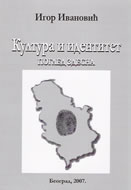| NSPM in English | |||
Russian Roulette |
 |
 |
 |
| четвртак, 06. новембар 2008. | |
|
30.10.2008 The National Interest
AMERICAN DEMOCRACY is malfunctioning to the detriment of our foreign-policy decision making. The hysterical and one-sided U.S. media coverage of the August war between Russia and Georgia is just the most recent example. Watching the way the American political class sometimes discusses international affairs, it is hard not to wonder to what extent we are capable of responsible judgments, or for that matter, even rational dialogue. In this particular case it could lead to the further disintegration of U.S.-Russia ties; in the longer term, our foreign-policy malfunctions could have far more catastrophic consequences. The suggestion that Russia started the war is simply a distortion of reality. As even ardent-Georgia-supporter Secretary of State Condoleezza Rice said, “following repeated violations of the ceasefire in South Ossetia, including the shelling of Georgian villages, the Georgian government launched a major military operation into Tskhinvali and other areas of the separatist region.” Tbilisi, which rejected several Russian proposals to sign a non-use-of-force pledge, may not have started the fighting, but did escalate it to an entirely new level. None of this is to whitewash Russian conduct. Moscow was not an impartial mediator and clearly supported both separatist regions, Abkhazia and South Ossetia. And Russia took the war to Georgia proper. Also, controversial Russian conduct at home and abroad inevitably provided the prism through which many in the West looked at the war over South Ossetia. Still, at the end of the day, this was a local conflict, with legitimate and illegitimate grievances on all sides—driven by leftover problems from the Soviet collapse. The war has not and will not affect fundamental American national interests so long as this incident does not become a model for future Russian behavior. Moreover, at this point, there are no grounds to believe that Russia will repeat what it did in Abkhazia and South Ossetia anywhere else on its periphery. Russian soldiers are not currently stationed in any other geographically contiguous regions. Nevertheless, it is necessary and appropriate for the United States to reassure Russia’s neighbors that America and its allies will resist any encroachment of their sovereignty, to tell Moscow that trying to oust the government in Tbilisi would be a deal-breaker in cooperating with the West, and to provide aid to rebuild Georgia and to help its government avoid collapsing under Russian pressure. The Bush administration went much further than that, however, with strong support from a bipartisan majority in Congress. All condemned Russia’s behavior and accepted Georgia’s, and many compared the situation to the Soviet invasion of Czechoslovakia in 1968 or, as some McCain advisers suggested, even the Nazi annexation of the Sudetenland in 1938. Treating Georgia as if it were an innocent victim, the administration launched a renewed and intense effort to get NATO support for a Membership Action Plan for Georgia in advance of a December 2008 meeting, despite the objections of key European allies and the risk of a protracted conflict with Russia in the Caucasus and beyond. No one expects a new cold war. Russia is neither a superpower nor a match for America militarily or economically. Nor does Moscow have a Soviet-style alliance of dependencies like the Warsaw Pact, despite half-hearted efforts to build a loose network of anti-American governments with Iran, Syria, Cuba and Venezuela. Moreover, Russia and its elite are much more integrated into the Western-dominated world economy than was ever conceivable in the Soviet Union’s time. Whatever else one may say about Prime Minister Vladimir Putin, President Dmitri Medvedev and their associates, they are calculating and pragmatic leaders. They want to restore Russia’s greatness and enhance its influence, especially in its neighborhood, but not at the cost of self-isolation, economic disaster or an all-out arms race with the United States. “Russia will always be opposed to Iran getting nuclear weapons. But how we discuss it with our American partners, in which forum, with which specific outcomes, of course is influenced by our general ability to work together, starting with the willingness of our American partners to sit down and discuss issues of mutual interest.” Unfortunately, while American and Russian interests on many matters are similar, they are not identical. For the American part, no administration can accept President Medvedev’s suggestion that Russia has “privileged interests” on its periphery. Nor can Moscow dictate who joins NATO. On the other hand, Russia has interests and leverage in other parts of the world the United States cares about. Moscow has had a businesslike relationship with Iran for decades. It does not view the Iranian nuclear program as a direct threat. A nonnuclear Iran is a U.S. priority, however. And as we saw with the breakdown of U.S.-Iran relations during the most recent UN Security Council meeting, without Moscow’s cooperation, all we end up with is hollow victories at best. There was no new movement on Iran’s enrichment program. Realistically, even with its enormous energy reserves, and the arms and influence they buy, Russia does not yet have the power or the inclination to lead a global anti-American coalition. But it can help to shape the evolution of the international system in ways that would damage the United States. No one quite knows what the world order will look like five or ten years from now, to say nothing of twenty or twenty-five years in the future. But as the financial crisis has reminded us, there is little we can take for granted in the complex world of the twenty-first century. American domination of international politics and economics is real, but it is not necessarily universal or permanent, and turning Russia into a hostile force could tip the balance in unpredictable and destructive ways. Finally, with a number of governments from Tehran to Tbilisi and Caracas to Kiev eager to manipulate the U.S.-Russia tension for their own purposes, we should not disregard the remote but ominous possibility of slipping inadvertently into a real shooting war. As Europe discovered in July 1914, carelessly expanding alliances can lead to disaster. Moscow’s initial euphoria over its victory in Georgia has been tamed of late by the dramatic decline of its financial markets. Russia’s political and business elite now have a better sense of the reality that their country’s economic integration into the international system is a two-way street and that it depends heavily on the West’s continued confidence in Moscow’s direction. This in turn creates an opening on both sides for a new beginning. We won’t have a beautiful friendship anytime soon, but we might be able to develop a viable path forward that advances our mutual interests and keeps our many disagreements under control. Russia will still make its own decisions and they often will not be the decisions we want to see. But in view of the alternatives, keeping the door open to a constructive relationship doesn’t look so bad. |
Остали чланци у рубрици
- Playing With Fire in Ukraine
- Kosovo as a res extra commercium and the alchemy of colonization
- The Balkans XX years after NATO aggression: the case of the Republic of Srpska – past, present and future
- Из архиве - Remarks Before the Foreign Affairs Committee of the European Parliament
- Dysfunction in the Balkans - Can the Post-Yugoslav Settlement Survive?
- Serbia’s latest would-be savior is a modernizer, a strongman - or both
- Why the Ukraine Crisis Is the West’s Fault
- The Ghosts of World War I Circle over Ukraine
- Nato's action plan in Ukraine is right out of Dr Strangelove
- Why Yanukovych Said No to Europe

.jpg)




















